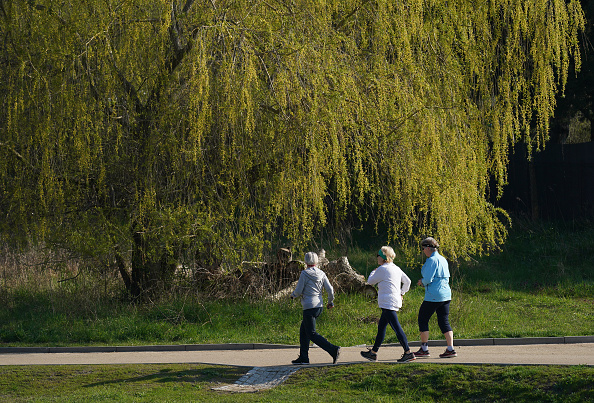Whilst the goal is to complete 150 minutes of exercise each week, it doesn’t really matter when you work out – just get it done.
It’s the third week of 2024, which means that millions of people around the world might be feeling the effects of New Year Resolutions involving improved exercise routines. Whilst there is a preconceived notion that our fitness goals need to be spread out over the week, research suggests that it’s okay to wait for the weekend.

‘150 minute’ exercise goals don’t care about when you work out
According to the Physical Activity Guidelines for Americans, adults need around 150 minutes of moderate-intensity exercise and two days of muscle-strengthening activity each week to stay healthy.
However, when you actually complete those 150 minutes doesn’t matter as much as previously thought. You can spread them out evenly over seven days, or cram it into two – it doesn’t matter, as long as you hit that two-and-a-half hour target.
That’s what Harvard researchers found last year when they analyzed data from almost 90,000 participants whose exercise routines were cataloged through a wrist-mounted accelerometer for several years.
- HELPFUL ADVICE: 5 tips to get through the final two weeks of Veganuary
The team found that those who exercised for 150 minutes over one or two days reduced their risk of heart attack by 27%, compared to 35% among people who exercised throughout the week.
These people, dubbed ‘Weekend warriors’, also saw the risk of heart failure drop by 38%, compared to 36% among more regular exercisers.
Co-author of the research Dr Patrick Ellinor told NBC News that “The idea that you could cram it all into a weekend or two days a week was a little surprising.”
Dr John McPherson of Nashville’s Vanderbilt University Medical Center added: “It can be bunched into two days or it can be 25 to 30 minutes every day. What’s really important is maintaining the 150 minutes a week.”

Morning exercise vs afternoon and evening workouts
Now that you know what differences weekday vs weekend exercises can have on your body, is there a specific time of the day that’s better for a workout? Well, yes and also no.
Morning exercise, especially on an empty stomach, has been found to increase the rate that your body burns through stored fat, Professor Anthony Hackney of the University of North Carolina Chapel Hill told Time Magazine.
“In the early morning hours, you have a hormonal profile that would predispose you to better metabolism of fat, [meaning you’ll] draw more of your energy from your fat reserves.”
Afternoon workouts are also ideal for fat-burning exercises and may also give you a ‘performance boost’ since you’ll have likely eaten by then.
“Any time you eat, your blood sugar levels rise. Sugar in the form of blood glucose…is one of the things we need if we’re trying to work at a higher intensity”, explained Hackney.
Then we come to nighttime and evening exercise, with a common belief that later exercise can lead to disrupted sleep patterns.
However, Professor Hackney claims that “evidence suggests that, as long as you’re not exercising, showering and then [immediately] jumping in bed to go to sleep, it doesn’t interfere with your sleep pattern at all.”
So, if you are to pick any one time of the day to exercise, Hackney recommends the morning – but at the end of the day, exercise is exercise whenever you do it.

“If you will do it in the morning, do it. If you will do it in the evening, do it. If your physiology is not going to match up with your behavior, then it’s a moot point.”
